From Hijab Bans to Politics to Islamic Scholarship – 9 Major Moments for Muslim Women in 2022
Current Events
|
Dec 29, 2022
|
12 MIN READ
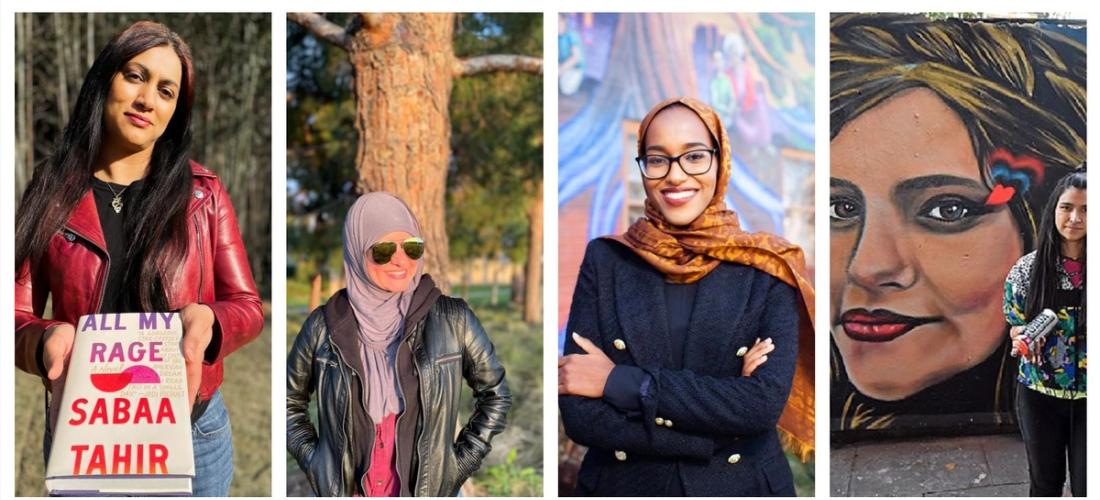
L to R: Author Sabaa Tahir, State Senator Zaynab Mohamed, Ustadha Maryam Amir, a mural of Mahsa Amini
In Minnesota, Zaynab Mohamed (D) became one of three Black women who made history by winning seats in the state senate. The 25-year-old politician became the youngest woman elected to the Minnesota state senate. Afghan women fought for their right to be educated as the Taliban banned them from attending universities. The first Muslim superhero made her debut in the Marvel universe. And Ustadha Maryam Amir released Qariah, the first ever app featuring women reciters of the Quran from around the world.
Muslim women had quite the year in 2022, making headlines for a variety of reasons. In recent years, there have been numerous stories about Muslim women making significant contributions to their communities and professions, such as doctors, teachers, activists and artists. There have also been stories about Muslim women breaking barriers and achieving milestones in fields where they have historically been underrepresented, such as politics, business and sports.
In various parts of the world, Muslim women are fighting for their right to wear hijab, to not wear it, against discrimination and hate and against the ravages of war. Let's revisit some of these notable women and stories from 2022.
Women's Rights, Social Justice and Protest Movements Around the World
1. The Death of Mahsa Amani Pushes Iranian Women & Men to Fight an Oppressive Regime
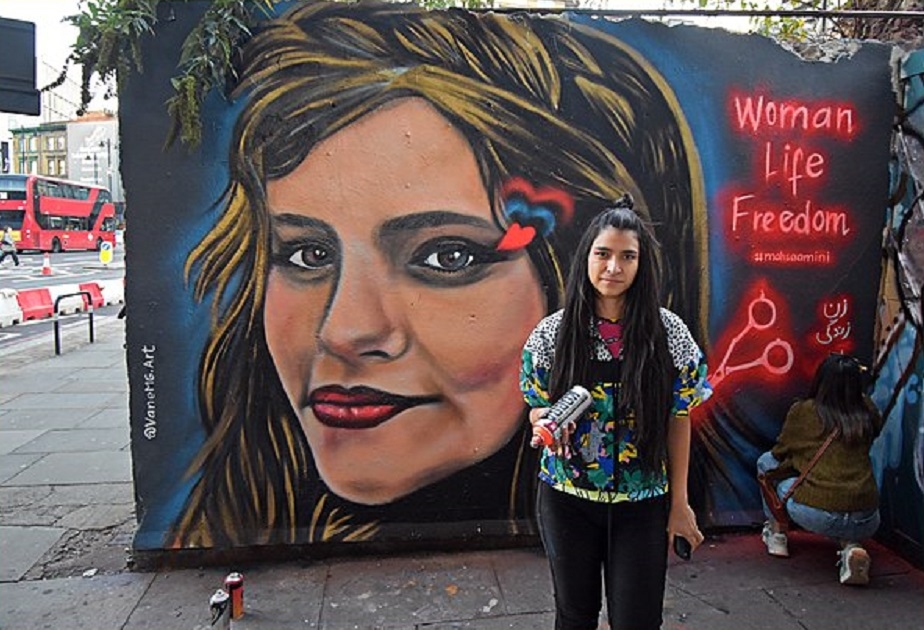
A young woman paints a mural of Mahsa Amini in the UK. Image source: Wikimedia Commons.
In September, the world’s eyes turned to Iran and 22-year-old Mahsa Amini, a young Iranian woman who died in police custody after being arrested for “improperly” wearing her hijab (some of her hair was showing) by the country’s infamous “morality police.” Several reports said she was beaten severely by members of the morality police during her arrest and transfer to the Vozara Detention Center. She fell into a coma at the center and died Sept. 16. Iranian authorities claim she died of a heart attack, but others in the country suggest her death resulted from alleged torture and violence, according to a United Nations report
In the days and months since, protests rocked Iran, with thousands of Iranians taking to the street and Muslim women publicly tearing off their hijabs and burning them. The demonstrators went beyond the question of forced hijab wearing to call for an end of the morality police and other repressive systems. Iran brutally cracked back. As Hoda Katebi, an Iranian American writer and community organizer, wrote, the current wave of anti-hijab protests is unprecedented in Iranian history: “This is not about Islam or enforcing ‘morality’ but about enforcing state power. … A huge number of Iranian civil society groups, including teacher collectives, worker unions, reformist political groups and religious clerics, have come out with statements demanding the abolition of the morality police.” After weeks of protests, the morality police was abolished, but protests continue because at the heart of the regime’s oppression is its focus on controlling women. – Dilshad D. Ali
2. Muslim Women Protest Hijab Bans in Karnataka, India
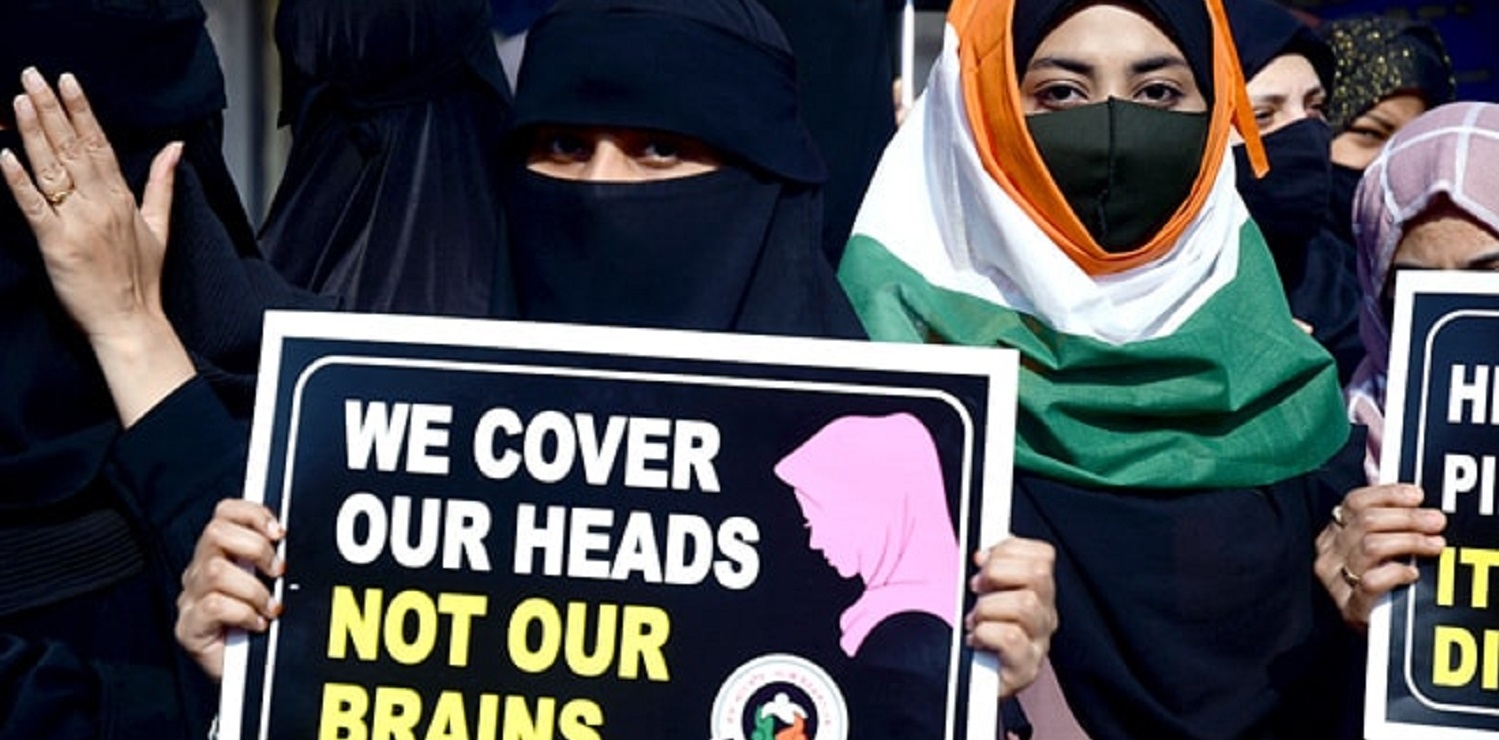
Women in India protest the outcome of the Karnataka hijab ban case; image source: Wikimedia Commons.
In September of 2021, teachers at a college preparatory institution in Udupi, Karnataka, India, turned away several Muslim women students because they were wearing hijab. The girls protested against the school dress code. In January of 2022, their parents petitioned the school to overturn the ban, saying it was violating the women’s right to obtain an education. Then, a video of Mukhsan Khan protesting the hijab ban went viral, drawing the world’s attention to what was happening in Karnataka. In March of 2022, a high court upheld the state government order in Karnataka that banned hijabs in the classroom, stating that the hijab is not “essential” to Islam, setting a dangerous precedent across India. This verdict came against the backdrop of targeted violence against Muslims and continuous conflict in India. But as Justice For All’s Hena Zuberi said, “Hijab is … categorically an Islamic practice. The world needs to wake up to the reality of what is happening in India.” – Dilshad D. Ali
3. Women in Yemen Work to Protect Children and Marginalized Women
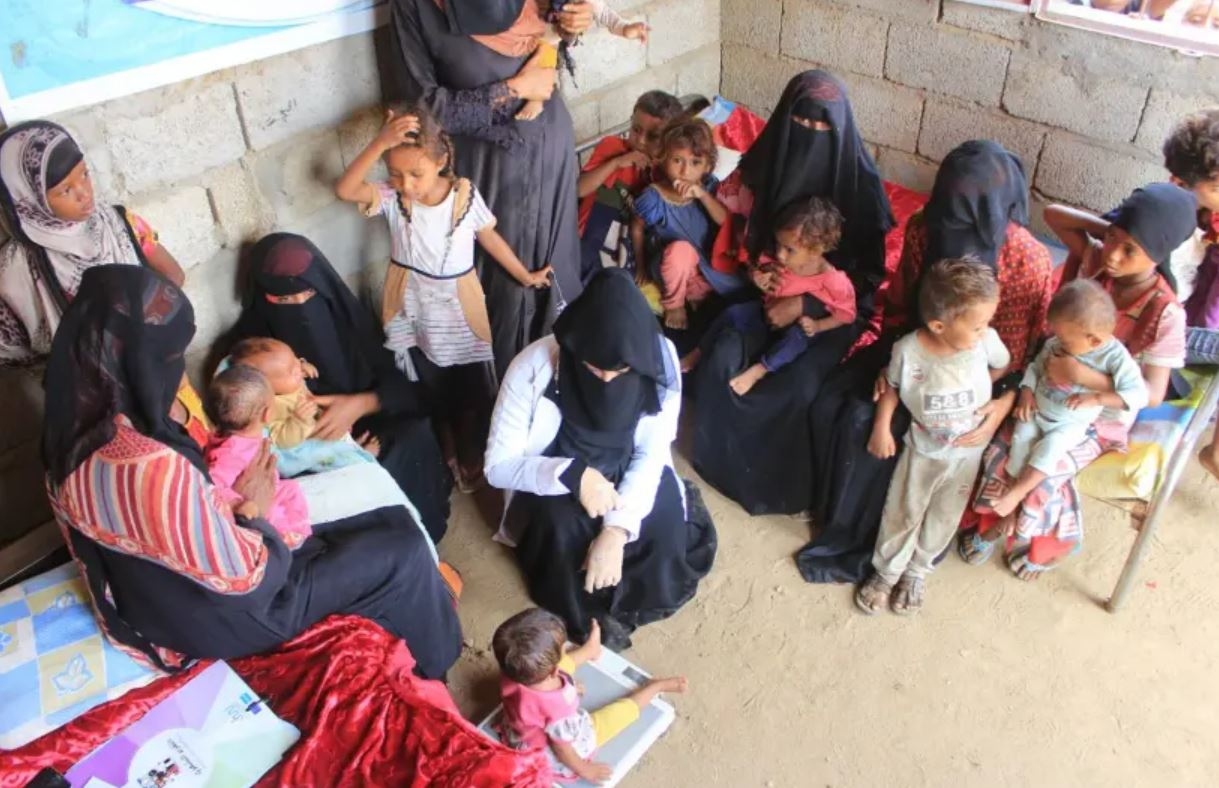
Ashwaq Mahmoud (in the center) works in a room inside her house, which she turned into a health clinic, in Abs District, Hajjah Governorate, Yemen (Photo credit: Essa Al-Rajehi; image source Twitter)
The ongoing civil war in Yemen has had a devastating impact on the people. The fighting has caused widespread destruction and displacement, forcing millions of people to flee their homes. The country's humanitarian situation remains dire, with millions facing food insecurity and a serious risk of famine. The conflict has also led to a breakdown in the country's healthcare system, with many hospitals and clinics being destroyed or damaged, and a lack of medical supplies and trained personnel.
The efforts to end the conflict and find a peaceful resolution have been ongoing but largely unsuccessful so far. The United Nations has led numerous rounds of peace talks, but these have failed to bring about a lasting peace. There have also been several ceasefires and humanitarian pauses, but these have been frequently violated by both sides.
Amidst all this, healthcare worker Ashwaq Mahmoud, human rights activist Misk al-Maqrami, and journalist Abeer Mohsen are working in the war-torn country to provide healthcare for children, rehabilitation for marginalized women and raise awareness about violations against women. As this article notes: “These three women are but a few out of the hundreds who have been able to use their country’s civil war to motivate themselves to realize their full potential and serve other women, as well as Yemeni society as a whole, through their experiences, awareness-raising work, qualifying and training other women, and offering services to other women.” – Layla Abdullah-Poulos
4. Taliban Further Restricting Women in Afghanistan
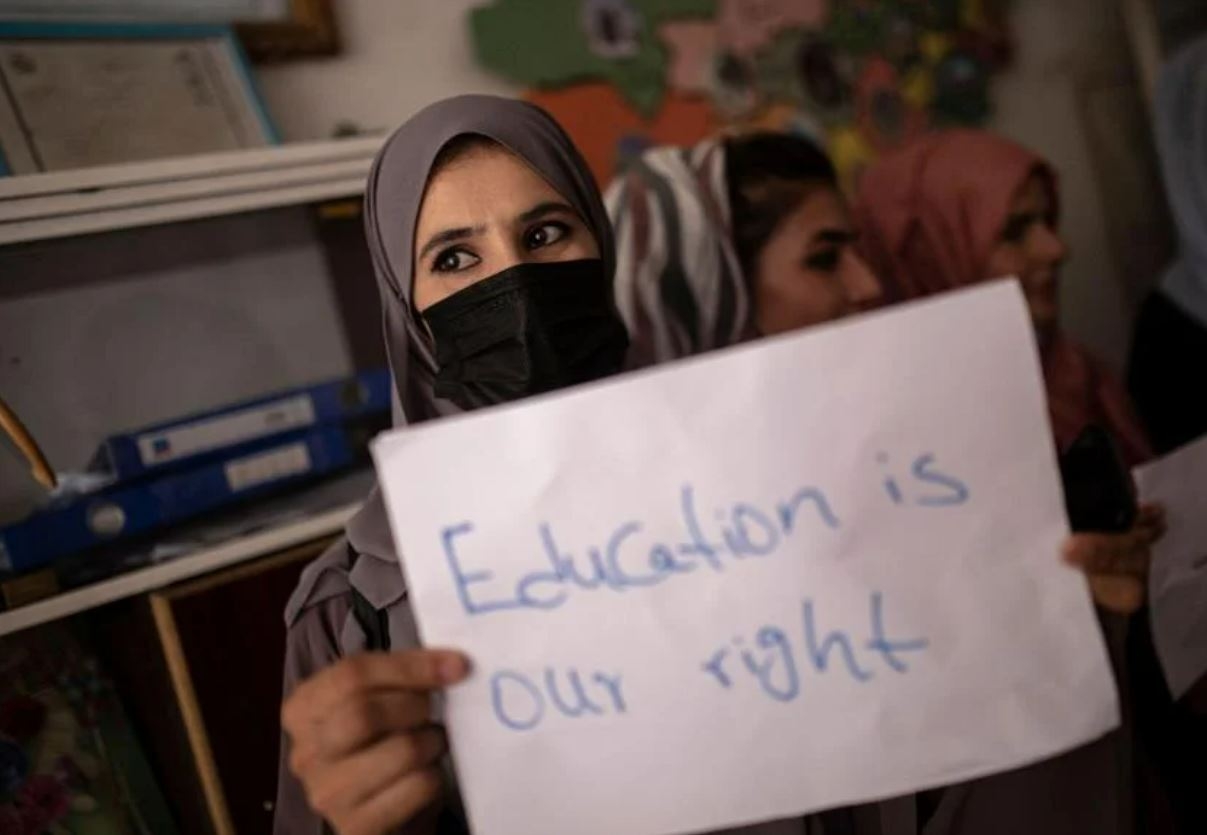
An Afghan woman protest for her right to an education; image source: Twitter and the Associated Press.
The Taliban initially ruled Afghanistan from 1996 to 2001, implementing a number of repressive policies towards women, including banning them from attending universities. During the Taliban's first rule, women were not allowed to seek higher education or work outside the home, and were required to wear the burqa, a full-body covering, at all times in public. The Taliban justified these policies by citing their interpretation of Islamic law and their belief that women should be confined to the private sphere.
In 2001, U.S.-led coalition overthrew the Taliban, relegating them to operating as an insurgent group in the country for 20 years. But after the U.S. pulled out of the country, the Taliban regained power in Afghanistan in August of 2021 and has resumed stripping women of their rights, including most recently the fundamental human right to an education. They initially banned most women in girls from attending high school, and recently reinstituted the prohibition on women attending universities. Pockets of the international community have protested this stripping of educational rights of Afghani women, but it’s not nearly enough. – Layla Abdullah-Poulos
Muslim Women in U.S. Politics
5. Muslim Women Win Elections and Amplify the Vote
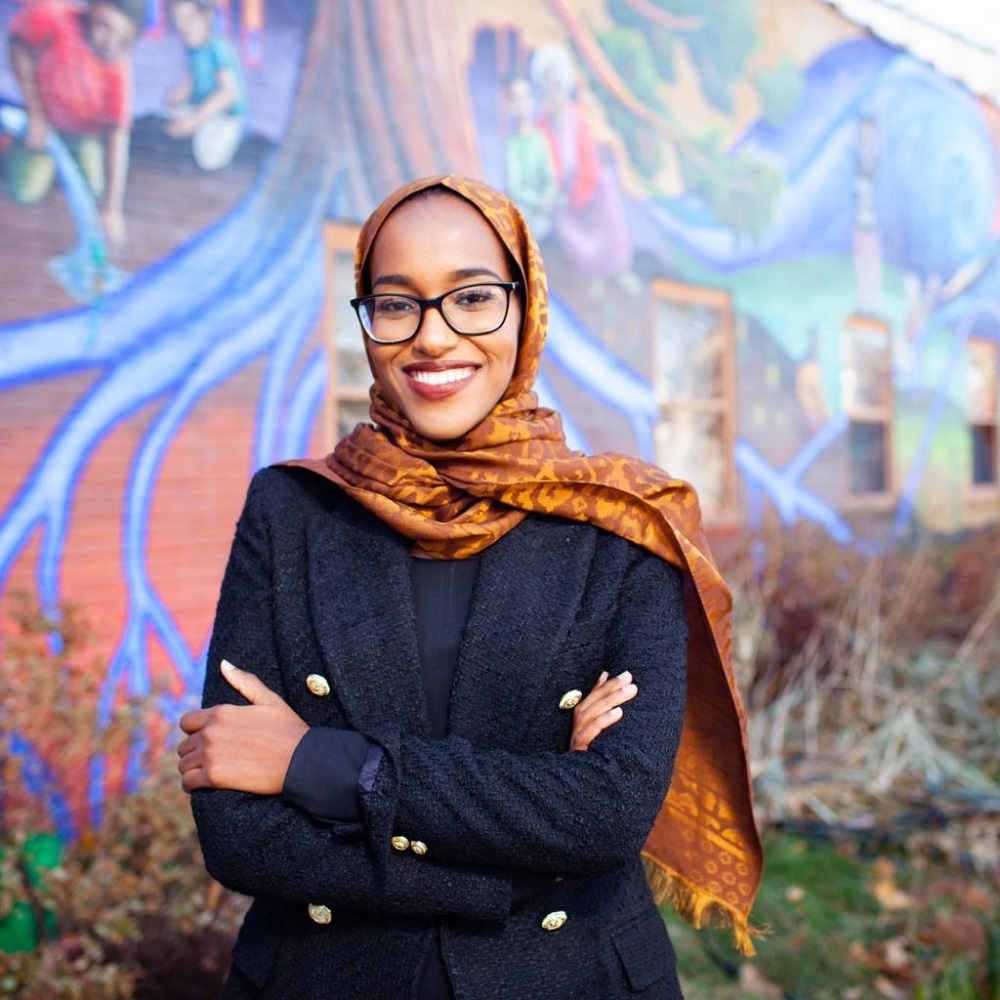
Minnesota State Senator Zaynab Mohamed (D); image source: Zaynab Mohamed campaign.
Muslim women have made significant contributions to American politics in recent years. Although they represent a small percentage of the Muslim population in the United States, they have been actively involved in various political campaigns and movements, advocating for issues affecting their communities and the broader society. Many Muslim women have also run for political office at the local, state, and national levels, seeking to bring their unique perspectives and experiences to the political discourse.
In Illinois, 23-year-old Nabeela Syed (D) flipped the Republican-held 51st District by defeating incumbent Chris Bos and winning a seat in the Illinois House of Representatives. Meanwhile in Minnesota, Zaynab Mohamed (D) was one of three Black women who made history by winning seats in the state senate. The 25-year-old politician became the youngest woman elected to the Minnesota state senate, leading her opponent by 72 percentage points. And in Georgia, Palestinian-American Ruwa Romman, a 29-year-old community organizer, made a historic win to the Georgia House of Representatives, becoming the first Muslim woman elected in that state.
In addition, Muslim women have also organized and participated in voter registration drives, volunteering their time and resources to help increase voter turnout in their communities. Despite facing challenges and biases due to their religion and gender, Muslim women in American politics have been making important strides. They will continue to play a vital role in shaping the country's future. – Layla Abdullah-Poulos
Islamic Female Scholarship in 2022
6. Honoring Shaykha Munira al-Qubaysi (1933-2022), a Pioneer in Islamic Female Scholarship
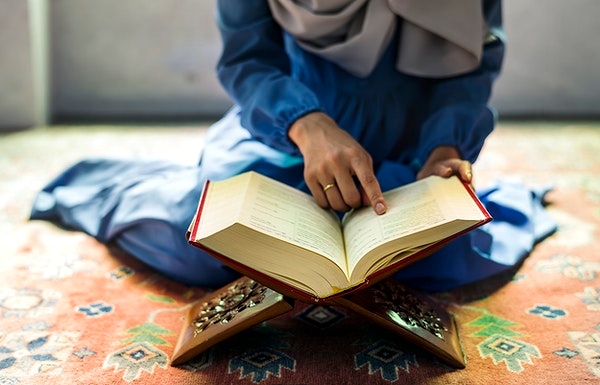
Image source: Pexels
Inna lillahi wa inna ilayhi raji’un. Shaykha Munira Qubaysi died in Damascus at the age of 89 on December 26, 2022. She started a women’s movement in the 1960s, the impact of which would reverberate around the world for decades to come. She taught girls and women to love God in the most profoundly spiritual way that went beyond legalisms, rigidity and harshness.
She was one of the first women to wear hijab while also pursuing a higher education in the 1950s at a time when going to college meant that women had to sacrifice their outward religious practice. She earned a Bachelor of Science in biology when religious families commonly did not let their daughters study past the sixth grade and had them married early. She modeled to an entire generation of women that they could be pious and devout while also caring for families, attaining the highest level of education in universities, and having a career. Her closest students were erudite Islamic scholars who published exceptional works in seerah, each of the four schools of fiqh, hadith, two large volumes of khutbas for all occasions, theology, and various other subjects. Her closest students were also not only learned women in the Quran, who spent their nights in pious devotion, but they were also physicians, professors, schoolteachers, principals, lawyers, pharmacists and engineers in the daytime.
She followed the model of Khadija (ra) and believed that it was important for women to have their own source income so that women could do their work without depending on their religious communities for financial support. She established a network of schools that served as a safety net for thousands of unmarried women who needed to support themselves and married women who wished to contribute to society beyond the walls of their home. Her success in building schools and hospitals (one of her students established a women’s hospital for women run by women) is also important to understand within the context of the contemporary history of Syria, in which quality modern education and healthcare was mostly run by foreign missionary women living in Syria since at least the 19th century.
As her work continued for decades, her fame became known around the world and women came from the corners of the earth to spend time in Damascus and learn from the students she mentored into scholars and spiritual mentors in their own right. Women from the United States, United Kingdom, all of the Arab world, almost all countries in Europe, Indonesia, Malaysia, India, Pakistan, Turkey and even from places as far as the Comoros Islands came in droves to learn from the women scholars of Damascus, many of whom whose presence alone was transformative to the soul.
Her humility and vigilance to remain unknown may cause many to overlook the extent of her global influence during the 70 years of her work. However, it would not be an exaggeration to state that Shaykha Munira al-Qubaysi was one of the most formative Muslims who shaped the Islam of the twentieth century. Some outsiders to her movement with limited knowledge labeled her students by her name. But this label was always firmly rejected by her, saying that her students were nothing more than Muslim women whose scholarship, devotion, and achievements were a manifestation of Islam’s 1400-year legacy of beauty, piety and learning. Her life’s work was dedicated to uplifting Muslims and Islam. – Feryal Salem
7. Ustadha Maryam Amir Releases the Qariah App
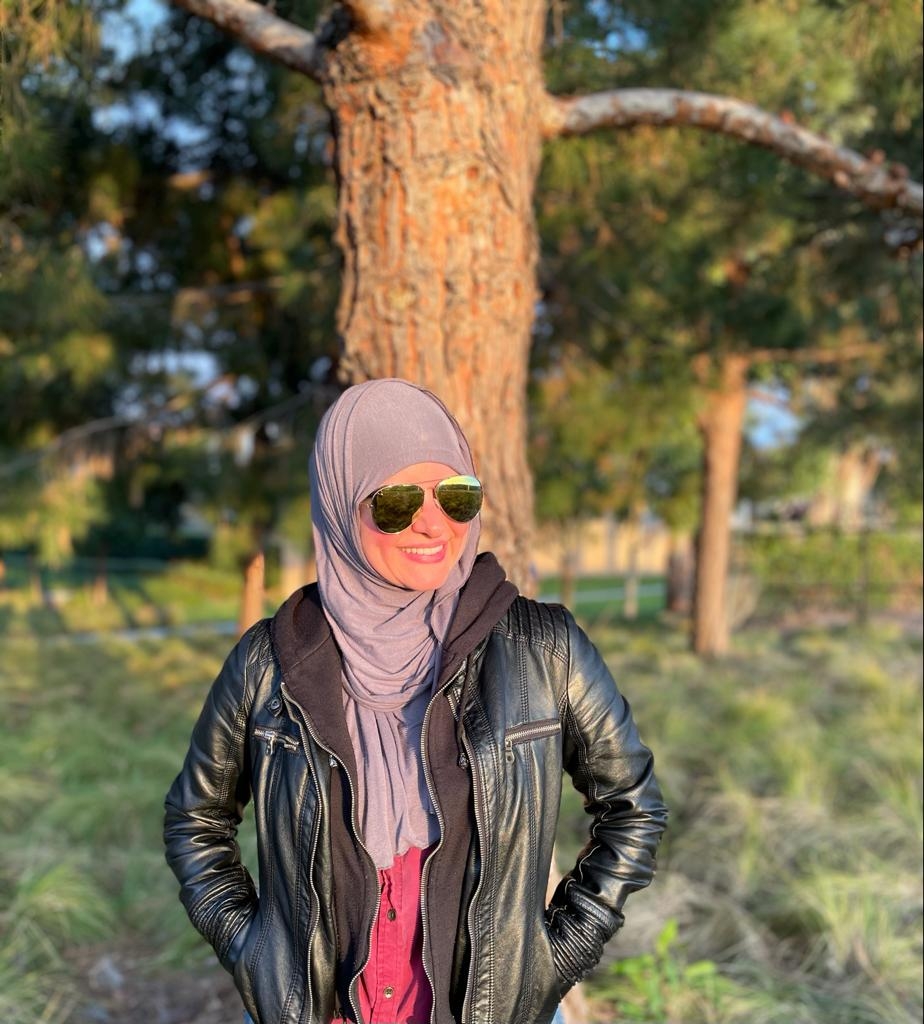
Ustadha Maryam Amir
Ustadha Maryam Amir is a lot of things to a lot of people – an educator, a scholar, a woman who inspires (she was one of the first teachers of Islam I told my daughter to follow on Instagram!), a teacher of our deen, a mentor, a nurturer, a hafidha (one who has memorized the Quran), a Qariah (a skilled reciter of the Quran) and so much more.
It is this last descriptor – Qariah – that has led her to her latest work, which ignited much excitement among Muslim women around the world. Ustadha Maryam is the creator of “Qariah: The Women Quran Reciters App,” which launched in Ramadan (April of 2022) and brought Quran recitations from women all over the world to our phones. According to the Qariah website, the app features 60 women on a global landscape, from Tanzania to Morocco to Spain to Somalia to Pakistan to Malaysia to Yemen to the United States and so many more countries and cultures.
The app, according to an FAQ on its website, is “intended for women and girls to learn the Quran from women’s recitations. This app is women’s recitations, for women, by women, for the sake of Allah.” Check out Ustadha Maryam Amir’s two-part interview with Haute Hijab about the behind the scenes work and prayers that led to the Qariah app: Part One | Part Two – Dilshad D. Ali
Muslim Women Slayed in Books, Television and Movies
8. Muslim Women Making Waves on the Silver Screen
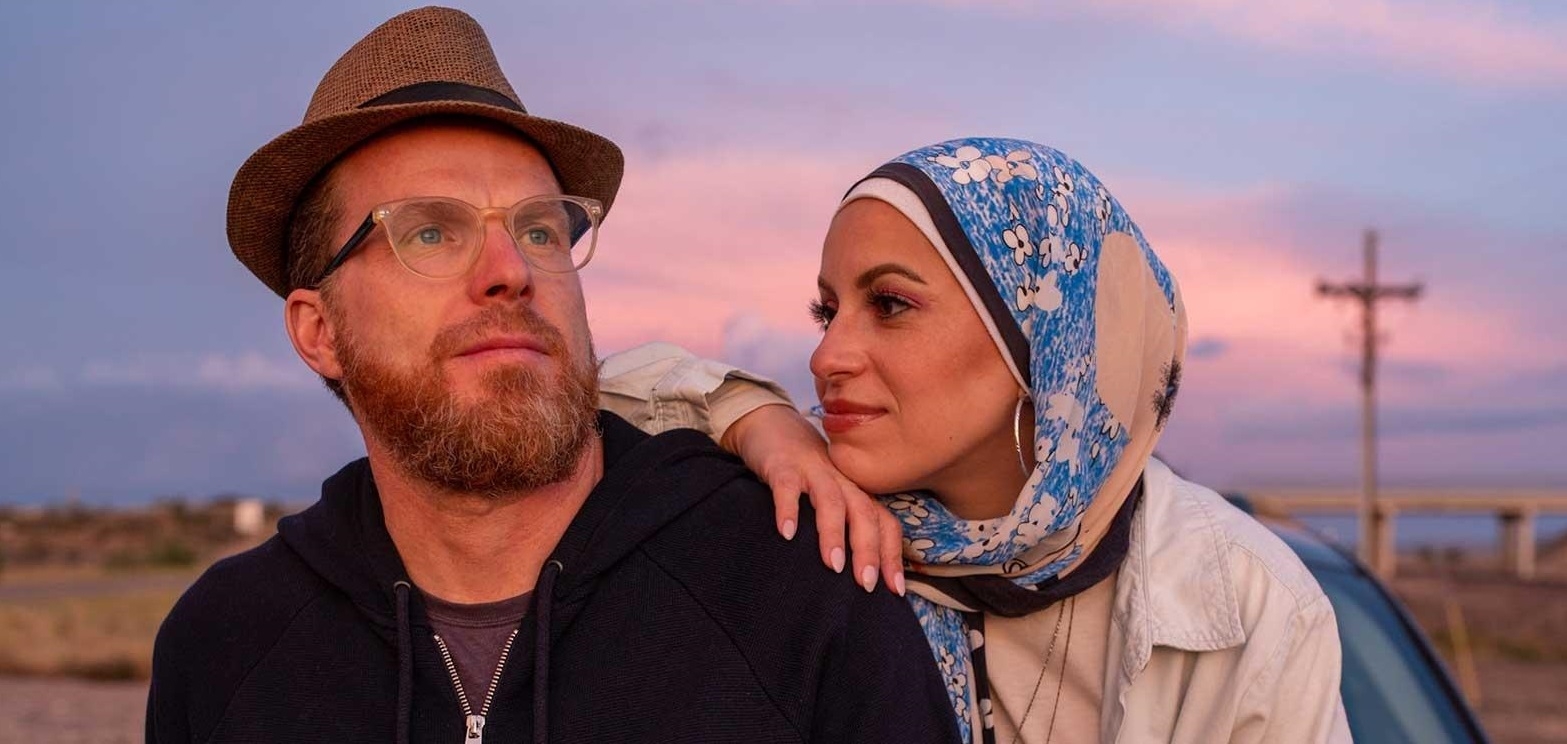
Mona Haydar and Sebastian Robins in The Great Muslim American Road Trip; image source: PBS.
This summer Disney and the Marvel universe brought forth the highly anticipated television series, Ms. Marvel, which featured the MCU’s first Muslim superhero – Kamala Khan. The six-episode series told the origin story of Pakistani-American teenager Kamala, played by newcomer Imani Velani. Our Haute Take columnist and Mommying While Muslim podcaster Dr. Uzma Jafri wrote about watching Ms. Marvel with her pre-teen daughter, and how it facilitated the best conversations with her, saying “What I loved most was watching the first episode … with tween Baby Girl later that night. I sat just behind her to observe her reactions. Within the first minutes of the episode, Kamala’s brother is making dhikr. I heard my daughter’s sharp inhale before her head whipped around to face me with elation. There was no other way to describe her countenance. That reaction alone was enough for me to thumb my nose at anyone who criticizes the show – because my daughter saw her life on that screen.”
July of 2022 brought us The Great Muslim American Road Trip, in which Muslim American couple Mona Haydar and Sebastian Robins invited us to join them as they hit the road along the famed Route 66. The three-part documentary, a film by Unity Film Productions’s Alex Kronemer and Michael Wolfe, began in Chicago and ended in Los Angeles. The couple took a few detours along the way as they met Muslims in unexpected places, examined their own relationship, and shined a light on untold stories of Muslims in America. As Hind Makki wrote, “Many readers will be familiar with Mona, a Syrian-American lyricist and rapper. Sebastian, the Muslim convert son of a Jewish father and Christian mother is an educator who describes himself as a seeker. Over the years, Mona and Sebastian have made a name for themselves as a Millennial Muslim couple dedicated to building bridges of interfaith understanding. This commitment is woven throughout the series, which unmistakably aims to educate non-Muslim viewers about the values Muslims share with other Americans, the community’s commitment to serve and give back to the country, and famous Muslim Americans.” – Dilshad D. Ali
9. Sabaa Tahir’s All My Rage wins National National Book Awards 2022 for Young People's Literature

Sabaa Tahir holds a copy of her book, All My Rage; image source: Sabaa Tahir on Twitter
Muslim women authors in America have made significant contributions to the literary landscape in recent years. From fiction and nonfiction to poetry and children's literature, these writers have brought diverse voices and experiences to the table, offering unique perspectives on various topics. In addition, many Muslim women authors have explored themes related to their faith and cultural heritage and issues of social justice, identity, and belonging. Their work has garnered widespread acclaim and has been recognized with numerous awards and accolades. In 2022, the National Book Foundation awarded author Sabaa Tahir the National Book Award for Young People’s Literature. Sabaa received the award for her book All My Rage, a YA novel featuring best friends Salahudin and Noor and their struggles with family dysfunction, criminal activity and high school angst. Sabaa was the first Muslim and first Pakistani-American woman to win in this category. – Layla Abdullah-Poulos
Who did we miss? We know there are so many, because no list can encapsulate all the notable moments surrounding Muslim women in 2022. Let us know in the comments below, and Bismillah for a good 2023!
Subscribe to be the first to know about new product releases, styling ideas and more.
What products are you interested in?

